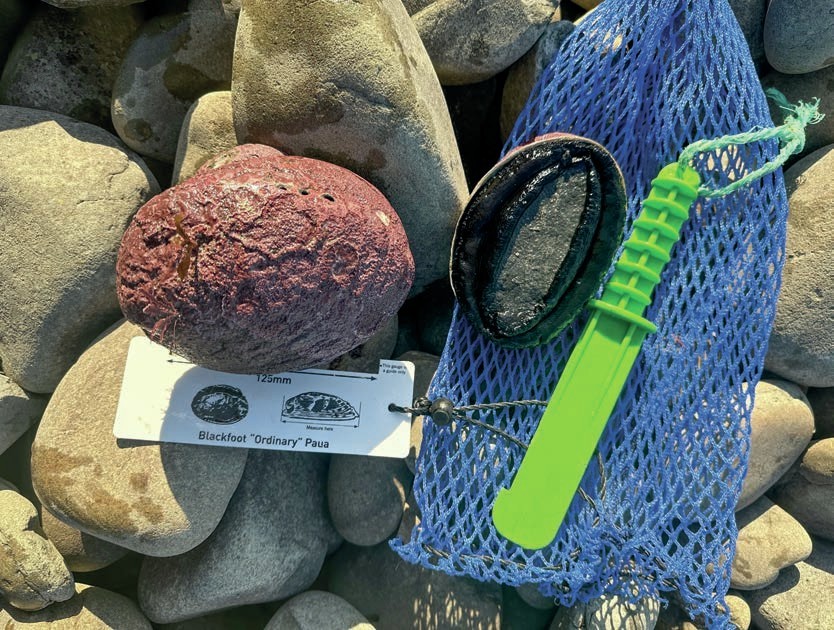CRACKS IN THE KAIKOURA PAUA FISHERY
New Zealand, a country just north of the furious 50s, is a series of small islands perched precariously on a volcanic fault line and more than 1,000 nautical miles from its nearest neighbours. We pride ourselves on our wild coastlines and incredible marine life. This is what attracts tourists from around the globe. Yet, a lot of Kiwis can’t even collect their own local kaimoana and feed their families.

In the Kaikōura region, priority has been given to commercial fishers who enjoy year-round access to the pāua fishery while local families are confined to a brief two- to three-month season.
Photo: Sydney Curtis.
In the Kaikōura region of the South Island, priority has been given to commercial fishers. They now enjoy yearround access to the pāua fishery, while local families are confined to a brief two- to three-month season.
It started back in 2016 when earthquakes along the Kaikōura coastline caused a significant uplift, leading to the widespread loss of shellfish, crayfish and pāua.
Emergency fishing closures were applied. While pāua populations have steadily rebuilt, the rules around harvesting the available shellfish are still being developed.
Recently, Fisheries New Zealand advised they were consulting on opening the Kaikōura pāua recreational season for 2024.
The New Zealand Sport Fishing Council and New Zealand Underwater Association, with the support of LegaSea and other major national organisations, urged the Minister for Oceans and Fisheries to extend the recreational season to nine months of the year from 2025.
The Kaikōura Boating and Recreational Fishing Club has persistently fought for reasonable public access to allow locals to collect pāua. However, progress is slow due to a staged approach to reopening the fishery and opposition from a powerful commercial sector.
Remember, nobody owns these natural resources, including pāua. They are a shared public resource. That is why the Minister has a statutory requirement to provide the public with reasonable access to their fishery.